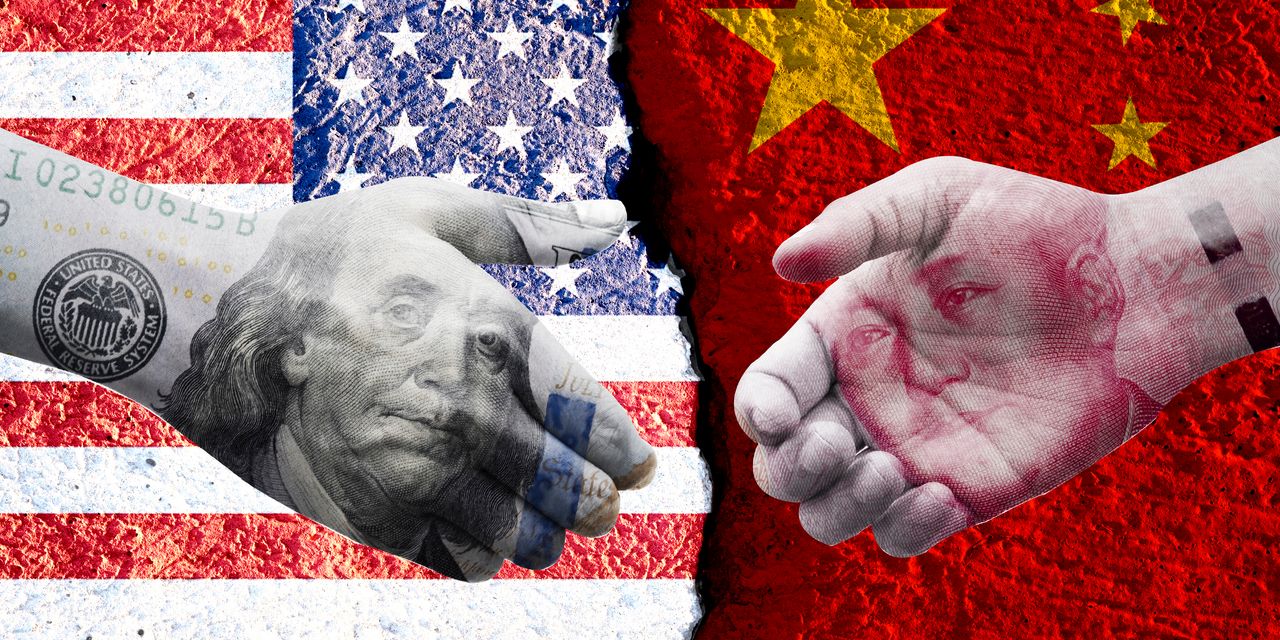America and its Western allies face a new era of geopolitical tensions with a coalescing alliance of autocratic states — China, Russia, North Korea, Iran and perhaps Saudi Arabia.
It’s become fashionable to warn about the dangers of a new Cold War. But competing with China for influence among emerging economies — where much of the world’s oil, natural gas and critical resources are located — will hardly be a replay of Western competition with the former Soviet Union.
In the 1960s and 1970s, the United States boasted the world’s richest and most dynamic economy and military supremacy. It offered unrivaled market access, development finance and institutional support through the IMF and World Bank and technical assistance. When nations fell into financial distress, the U.S. and its allies could obtain democratic and economic reforms through virtual monopoly control of financial resources.
Those days are gone. Nowadays China is often a more important market than the U.S. and has become a major source of development finance. Developing nations, whose economies have been wracked by COVID, food shortages created by the war in Ukraine and the U.S. Federal Reserve pushing up interest rates, are seeking assistance through the abovementioned international institutions.
With China as the major sovereign creditor to developing nations, it holds the keys to debt restructuring. China will seek influence in this area and is unlikely to prioritize reforms friendly to Western democratic-capitalism and the dominant role of the U.S. dollar
DX00,
DXY,
Transactional world order
One of the hallmarks of this Cold War 2.0 is the emergence of players outside of the Western alliance and axis of autocrats who enjoy significant economic, financial or technological clout.
These nations are transactional and hardly see the world in the sharp contrast of good and evil, as Western leaders and many of its citizens are inclined. They are either hostile to the West’s democratic values or willing to ignore, for example, Russia’s atrocities in Ukraine, China’s repression of millions of Muslims in Xinjiang and its surveillance state, and Iran’s terrorist activities, as long as those don’t affect them.
For instance, Israel refused to provide Ukraine with its Iron Dome air defenses. India happily buys more oil from Russia. Saudi Arabia cooperated with Russia to attempt to boost the price of oil, thereby increase the latter’s war chest. Brazil is forging closer ties with China.
The botched American withdrawal from Afghanistan, reluctance to provide Ukraine with the weapons it needs, and the overreliance of U.S. policy on economic sanctions — specifically to deal with Russian, Iranian, North Korean and Chinese provocations — encourage developing and emerging economies to seek alternatives to the U.S. dollar for international transactions and backing their currencies.
India and Malaysia, for instance, have agreed to settle commercial transactions in rupee instead of dollars. Saudi Arabia and the United Arab Emirates are seeking alternatives to the dollar for oil payments. China is the largest market for Brazil’s most important exports — soybean and iron ore — and the two countries have agreed to settle their trade in Chinese yuan
USDCNY,
and Brazilian real
BRLUSD,
Meanwhile, Indonesia is preparing to phase out both Visa and Mastercard in favor of a local payments system.
Developing and emerging economies running into the arms of China and the end of U.S. dollar dominance would greatly diminish the attractiveness of U.S. banks and multinational companies. So far the overall effects have been small, but should China permit guaranteed convertibility of the yuan and provide a secure supply of yuan-denominated bonds, its currency could present non-aligned nations with a significant substitute for the dollar as their primary reserve currency.
Trade barriers
Moreover, U.S. trade policy under both President Joe Biden and former president Donald Trump has turned decidedly nationalistic and protectionist. As a policy toward China and other autocrats that makes sense but for the rest of the world, it makes America little better than China.
It’s hard to see how Biden’s Indo-Pacific Economic Framework, or his industrial policies, differ much from Chinese mercantilism. The U.S. seeks concessions on technology standards, climate change and labor practices but doesn’t offer enhanced access, and the government subsidizes domestic manufacturing. China imports raw materials and whatever else it can’t make but otherwise does much of the same as Biden’s version of America First.
The U.S. needs to take more risks to defend Ukraine and Eastern Europe and to confront Iran. Excessive reliance on sanctions and protectionism is self-defeating.
Peter Morici is an economist and emeritus business professor at the University of Maryland, and a national columnist.
More: Wall Street’s crystal ball is broken: Why financial markets’ big bet on China’s economic boom is going all wrong
Also read: A new generation of emerging markets is poised to rise
Read the full article here




